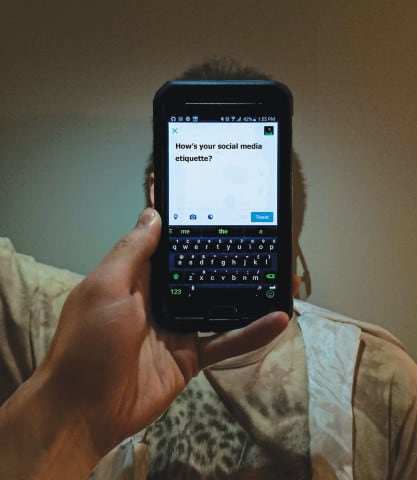The Internet is essentially an anarchic and chaotic free-for-all. Given the nature of the online world, how do you know when to set limits in terms of the things you post online?
In the age of digital communication, the phrase “anything you post online is there forever” holds a degree of truth when accounting for numerous social media platforms and the way individuals’ identities are shaped through the online sphere.
It is not uncommon for individuals of varying professions to get heat for the content they upload online. Individuals who post material that is offensive or scandalous are at risk of leaving an online imprint on their reputation. Whether or not these posts are recent or from several years ago is besides the point — they exist and they’re public.
 With the increasing relevance of social media being utilized by multiple age groups, it has become typical of employers to screen potential and current workers to make sure their social media accounts are free of any content that could potentially damage their company’s reputation.
With the increasing relevance of social media being utilized by multiple age groups, it has become typical of employers to screen potential and current workers to make sure their social media accounts are free of any content that could potentially damage their company’s reputation.
Although there may be some grey areas in terms of what is deemed acceptable, there are also very clear lines. Obscene images of partying, drinking and drug use or extremely discriminatory or bigoted comments, for example, are sure to leave a lasting impression on anyone who views them, especially employers.
The line becomes a little fuzzy when politics, religion and other personal views and convictions come into play. While abstaining from any of this content and expressing strictly non-partisan and neutral views would be ideal, it is inevitable that for many, social media is used as an outlet for expression.
There is no filter for posting online, leaving you with a large amount of discretion. Here’s a general rule of thumb that I typically use when I’m on the fence about the appropriateness of a post.
Ask yourself, “Would I say this to someone in person?” Keep in mind your prospective audience. Chances are if you wouldn’t say it to your boss or in a professional environment, you shouldn’t be saying it at all.
Also, if you’re se cond-guessing whether or not to post something, chances are you probably shouldn’t.
Generally, the same rule applies for photos as well. A photo is a direct, visual representation of yourself. The only difference is that your face is being represented by pixels rather than in person
For example, a photo of you and a few friends out for a glass of wine will not impose significant collateral harm. However, think within reasonable limits. If you’re in a professional position where drinking is frowned upon or prohibited in your job description, then don’t do it.
It’s common to be linked to co-workers through social media, but adding your boss on Facebook may not necessarily be a great idea. Then again, this is all discretionary. You might have a more personal relationship with your boss, but it is generally advisable to keep your work life and personal life separate.
To play it safe, changing your privacy settings to prevent onlookers from browsing your profile grants you a degree of security. But in terms of your overall reputation, it is better to maintain a consistent image towards the general public, not just for the sake of your job. Think about how you want others to view your online presence, including family, friends and colleagues.
Even if your privacy settings are at top-notch levels of security, your virtual self does not exist in a bubble. There are other ways for employers to track your online presence, such as photos of you posted by others.
It is ultimately up to you to decide how you want your professional image to appear to others. I advise you to avoid blatantly offensive or obscene content on social media, but I encourage you to think hypercritically of where you want to be professionally, and make informed judgement calls around your personal circumstances.
—
Photo: Michael Bergen
Leave a Reply